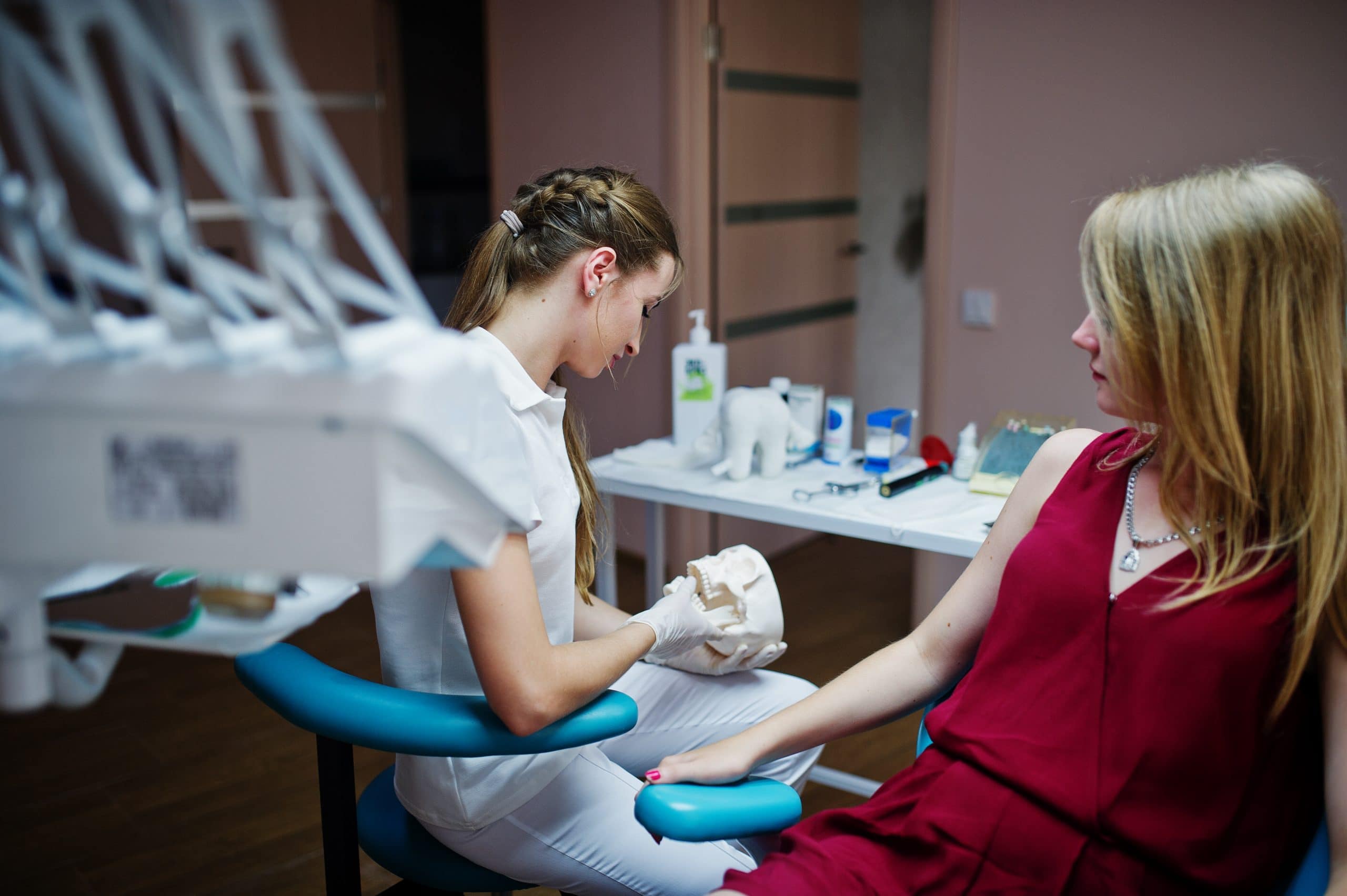All-on-Four dental implants are a popular treatment option for patients who have lost multiple teeth or require full-arch rehabilitation. This procedure uses four strategically placed implants to support a dental prosthesis. It is often chosen as an alternative to traditional dentures due to its stability and function. However, not all patients may be suitable candidates, and outcomes can vary depending on individual health and anatomical factors.
While many patients benefit from improved chewing ability and confidence, it’s important to explore the risks involved. The downside of All-on-Four dental implants may include complications such as implant failure, prosthesis wear, or gum irritation. Understanding these limitations helps patients choose the treatment that’s right for them based on their personal needs, preferences, and oral health. This article will outline these considerations to provide a balanced and realistic overview of the procedure.
- All-on-4 dental implants are a full-arch replacement option using four implants to support fixed prosthetic teeth.
- Compared to conventional implants, All-on-4 uses fewer implants and may reduce the need for bone grafting. However, clinical suitability depends on bone quality, health history, and individual treatment needs.
- This dental procedure may offer improved stability and chewing function over removable dentures. Some patients also report enhanced speech and daily comfort with the fixed design.
- Potential disadvantages include higher initial costs and the need for surgery with a healing period. Post-operative care, follow-up, and maintenance are essential for long-term success.
- Not all patients are ideal candidates for this treatment due to health or anatomical limitations. A professional consultation is required to assess risks, benefits, and personalised treatment options.
- Good oral hygiene and regular dental checkups are important after treatment. These steps help reduce the risk of complications such as implant failure or peri-implant disease.
What Are All-on-4 Dental Implants?
The All-on-4 technique is a dental treatment that restores an entire arch of missing teeth by placing four implants into the jawbone in specific positions. This fixed prosthetic option is designed to restore aesthetics and function for patients with significant tooth loss. Unlike traditional dentures, All-on-4 implants are not removable at home and provide a more stable foundation. The procedure may be suitable for individuals who meet specific clinical criteria after a thorough dental assessment.
Compared to placing multiple single implants, the All-on-4 technique uses fewer implants to support a full arch, which may reduce treatment time and surgical complexity. It can also eliminate the need for bone grafting in some cases due to the angled placement of the posterior implants. However, suitability depends on individual bone quality, oral health, and other medical considerations. A dental consultation with a professional is essential to determine if All-on-4 is appropriate for your specific needs.
Benefits of All-on-4 Dental Implants as Full-Arch Replacements

All-on-4 dental implants are designed to offer practical advantages for patients seeking a full-arch tooth replacement. This treatment approach aims to streamline the surgical process while providing functional and aesthetic improvements. From treatment efficiency to everyday comfort, several benefits make All-on-4 a compelling option for some patients when clinically appropriate.
Fewer Implants for Full Arch Support
The All-on-4 technique uses four strategically placed implants to support a full arch of teeth, unlike traditional methods that often require six to eight. This approach reduces the number of surgical sites, which may lead to a shorter procedure and potentially less post-operative discomfort. Fewer implants can also mean fewer materials and may reduce the need for extensive bone grafting in some cases. However, a comprehensive dental assessment is essential to determine if this option is clinically appropriate for the individual.
Faster Treatment and Recovery Time
All-on-4 dental implants may offer a shorter overall treatment timeline compared to traditional implant methods, depending on the patient’s case and clinical needs. This approach often reduces the number of surgeries required, as four implants can support a full arch of teeth. In some cases, a temporary prosthesis may be placed shortly after implant surgery, but final restoration typically follows adequate healing. Recovery experiences vary, and patients should consult a qualified dentist to understand the expected timeframes and suitability for this treatment.
Improved Stability Compared to Dentures
Fixed prostheses, such as All-on-4 implants, are anchored directly to the jawbone, providing improved retention and stability compared to removable dentures. This integration helps reduce unwanted movement during speaking or chewing, which can be a common concern with traditional dentures. Patients often report feeling more confident during daily activities due to the secure fit of implant-supported prostheses. However, individual experiences may vary, and a thorough clinical assessment is necessary to determine suitability for implant treatment.
Preserves Jawbone Structure
All-on-4 dental implants can help maintain jawbone volume by mimicking the natural stimulation provided by tooth roots during chewing and biting activities. When teeth are lost, the jawbone may shrink over time due to lack of stimulation, a process known as bone resorption. Dental implants integrate with the bone, helping to transmit functional pressure and encourage ongoing bone cell activity. While this stimulation may not completely prevent bone loss, it can significantly reduce the rate of deterioration in many suitable patients.
Enhanced Speech and Eating Function
Some patients find that fixed All-on-4 prosthetics enhance their ability to chew a wider variety of foods compared to removable dentures. This improvement is due to the stable anchorage provided by dental implants, which support more efficient bite force distribution. Improved stability can also help reduce speech difficulties often caused by shifting or loose dentures. However, results can vary, and speech or chewing improvements depend on individual factors like implant placement, prosthesis fit, and patient adaptation.
What Are the Disadvantages of All-on-4?
While All-on-4 dental implants offer many advantages, they are not without important considerations. This section outlines key considerations related to the disadvantages of All-on-4 dental implants, including suitability, maintenance, and procedural factors. Understanding these aspects can support personalised treatment decisions.
Higher Upfront Cost Than Dentures
All-on-4 dental implants involve a higher upfront cost compared to traditional removable dentures due to surgical procedures, implant materials, and laboratory fees. While dentures are often more affordable initially, they may require frequent replacements, relining, or adjustments over time. All-on-4 can offer long-term functional and aesthetic benefits, but individual suitability and overall value should be assessed on a case-by-case basis. It’s important to consult a dental professional to understand full treatment costs and explore all options based on clinical needs.
Not Suitable for Everyone
All-on-4 dental implants may not be appropriate for patients with significantly low jawbone density without additional surgical procedures like bone grafting. Certain medical conditions, such as uncontrolled diabetes or immune disorders, can interfere with healing and implant integration. A thorough clinical assessment, including radiographic imaging and medical history review, is necessary before confirming suitability for treatment. Your dentist will determine the most appropriate treatment plan based on individual health needs and oral conditions.
Requires Surgery with Healing Period
All-on-4 dental implants require a surgical procedure, which involves placing four titanium implants into the jawbone under local or general anaesthesia. Like all surgeries, this process carries risks such as infection, swelling, bruising, and post-operative discomfort, which vary between individuals. Healing typically takes several months, during which the implants integrate with the bone. Regular follow-up appointments are essential to monitor healing progress, manage potential complications, and help maintain long-term implant stability and success.
Fixed Nature May Not Suit Everyone
Unlike traditional dentures, All-on-4 prostheses are fixed in place and cannot be removed by patients at home for cleaning or comfort adjustments. Any modifications or removals must be performed by a qualified dental professional using specialised tools and techniques. This fixed nature can be inconvenient for some individuals who prefer the flexibility of removable dentures for hygiene or lifestyle reasons. It’s important to discuss personal preferences and daily maintenance habits during your consultation to determine if this treatment aligns with your needs.
Potential Maintenance and Adjustments
Over time, the All-on-4 prosthesis may experience wear or fracture due to regular chewing forces or accidental trauma, requiring professional assessment. Implant posts can sometimes loosen, especially if bone support weakens or excessive bite pressure is applied. Maintaining proper oral hygiene around the implants is essential, as plaque buildup may lead to inflammation or peri-implant disease. Regular dental checkups are necessary to monitor the integrity of the prosthesis and help maintain long-term implant health.
Is All-on-4 Right for You?
Determining if All-on-4 dental implants are suitable for you requires careful consideration of your oral health needs, lifestyle factors, and overall medical history. This decision should be made in consultation with an appropriately qualified health practitioner who can assess the potential advantages and disadvantages of the treatment. This decision should always be made in consultation with an appropriately qualified health practitioner. Below is a balanced overview to help guide your discussion during a professional evaluation.
- Individual Suitability Varies:
Not every patient is a candidate for All-on-4 dental implants. People with severe bone loss, chronic gum disease, or certain medical conditions may require other tooth replacement options, such as zygomatic implants or traditional dental implants. A detailed clinical assessment, including imaging and a review of your dental health, is essential to determine suitability. - Anatomical Limitations and Bone Quality:
The All-on-4 technique uses just four implants to support a full arch restoration, requiring adequate bone quality and volume in the jaw. A thorough assessment is necessary to determine whether the upper or lower jaw is suitable for implant placement without additional procedures. In cases of poor bone density, additional procedures like bone grafting may be needed to secure the titanium dental implants successfully. - Recovery and Healing Period:
All-on-4 is a surgical or invasive procedure, and as with any implant surgery, a healing period is expected. While many patients resume normal activities within days, post-surgery swelling, bruising, and discomfort may occur. Some individuals may need pain medication and soft foods during the initial recovery process. - Fixed Nature May Not Suit Everyone:
Unlike removable dentures, All-on-4 prosthetic teeth are fixed and cannot be taken out at home. An experienced dentist must make any adjustments. Some patients may find this lack of flexibility inconvenient, especially if complications arise with the prosthesis or implant site. - Potential for Implant Failure or Complications:
While many patients experience stable outcomes, there is still a small risk of implant failure or infection with All-on-4 dental implants. Factors such as inadequate oral hygiene, uncontrolled gum disease, or pressure on the implant site from hard foods can affect long-term outcomes. Proper follow-up care and consistent maintenance are essential. - Not a “One-Size-Fits-All” Treatment:
The All-on-4 approach offers many benefits, including shorter treatment time and fewer implants, but it may not deliver the same results for everyone. Patients with complex needs, such as multiple missing teeth or full mouth restoration, may require a more customised approach to implant treatment. In such cases, conventional dental implants may need to be placed in additional areas to provide adequate support and long-term stability. - Cost and Long-Term Investment:
One of the most frequently cited disadvantages of All-on-4 implants is the high upfront cost. The treatment offers a secure foundation and typically requires less maintenance over time, contributing to its appeal for full arch tooth replacement. However, the total cost can vary based on implant materials, whether bone grafting is required, and other individual preparatory dental procedures. Patients should discuss interest-free options or payment plans if available. - Oral Hygiene Commitment is Essential:
Maintaining good oral hygiene is important to the long-term success of All-on-4 implants. This includes daily brushing, using a water flosser around the implant-supported bridge, and regular professional cleaning. Neglecting oral hygiene can lead to inflammation, peri-implantitis, or gum recession, affecting function and aesthetics.
All-on-4 dental implants may be a suitable option for patients seeking full arch teeth replacement, depending on their clinical needs and oral health status. A consultation with a qualified health practitioner will help determine if this treatment aligns with your goals and expectations for long-term oral function and well-being.
Final Thoughts
All-on-4 dental implants offer functional and aesthetic benefits, but they also have limitations that may affect long-term suitability for some patients. Common disadvantages of All-on-4 dental implants include potential maintenance issues, surgical risks, and limited removability. Understanding the benefits and drawbacks is essential when considering this type of full-arch tooth replacement. Each patient’s oral health and lifestyle needs should be carefully assessed before proceeding with treatment.
At Darch Dental Centre, our experienced team provides thorough evaluations to determine if All-on-4 is the most appropriate option for your situation. We prioritise patient education to help you make informed, confident choices about your dental care. A personalised consultation allows us to explain the process, discuss possible risks, and explore alternative treatments if needed. Book an appointment today to receive tailored advice from a qualified dental professional.
 By Dr. Jon ( Junyi ) Ho
By Dr. Jon ( Junyi ) Ho 



